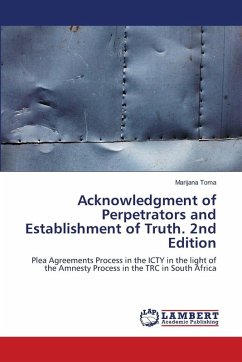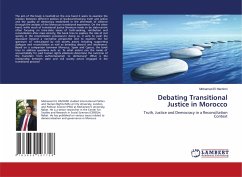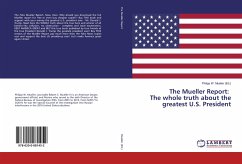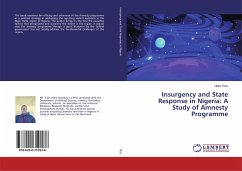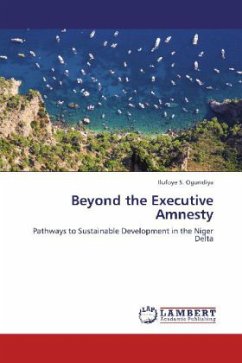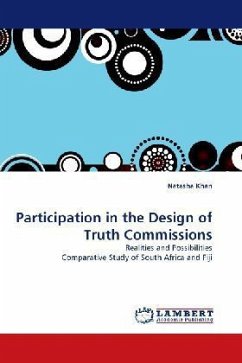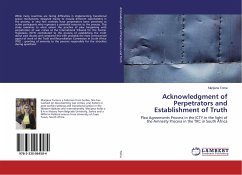
Acknowledgment of Perpetrators and Establishment of Truth
Plea Agreements Process in the ICTY in the light of the Amnesty Process in the TRC in South Africa
Versandkostenfrei!
Versandfertig in 6-10 Tagen
33,99 €
inkl. MwSt.

PAYBACK Punkte
17 °P sammeln!
While many countries are facing difficulties in implementing transitional justice mechanisms, designed mainly to include different stakeholders in the process, in very few contexts have perpetrators been perceived as active participants who represent a potential resource to the process. This study examines to what extent the practice of plea bargaining with perpetrators of war crimes at the International Tribunal for the Former Yugoslavia (ICTY) contributed to the process of establishing the truth about past abuses and compared this with probably the most controversial aspect of work of the Tr...
While many countries are facing difficulties in implementing transitional justice mechanisms, designed mainly to include different stakeholders in the process, in very few contexts have perpetrators been perceived as active participants who represent a potential resource to the process. This study examines to what extent the practice of plea bargaining with perpetrators of war crimes at the International Tribunal for the Former Yugoslavia (ICTY) contributed to the process of establishing the truth about past abuses and compared this with probably the most controversial aspect of work of the Truth and Reconciliation Commission in South Africa (TRC) - granting of amnesty to the persons responsible for the atrocities during apartheid.



